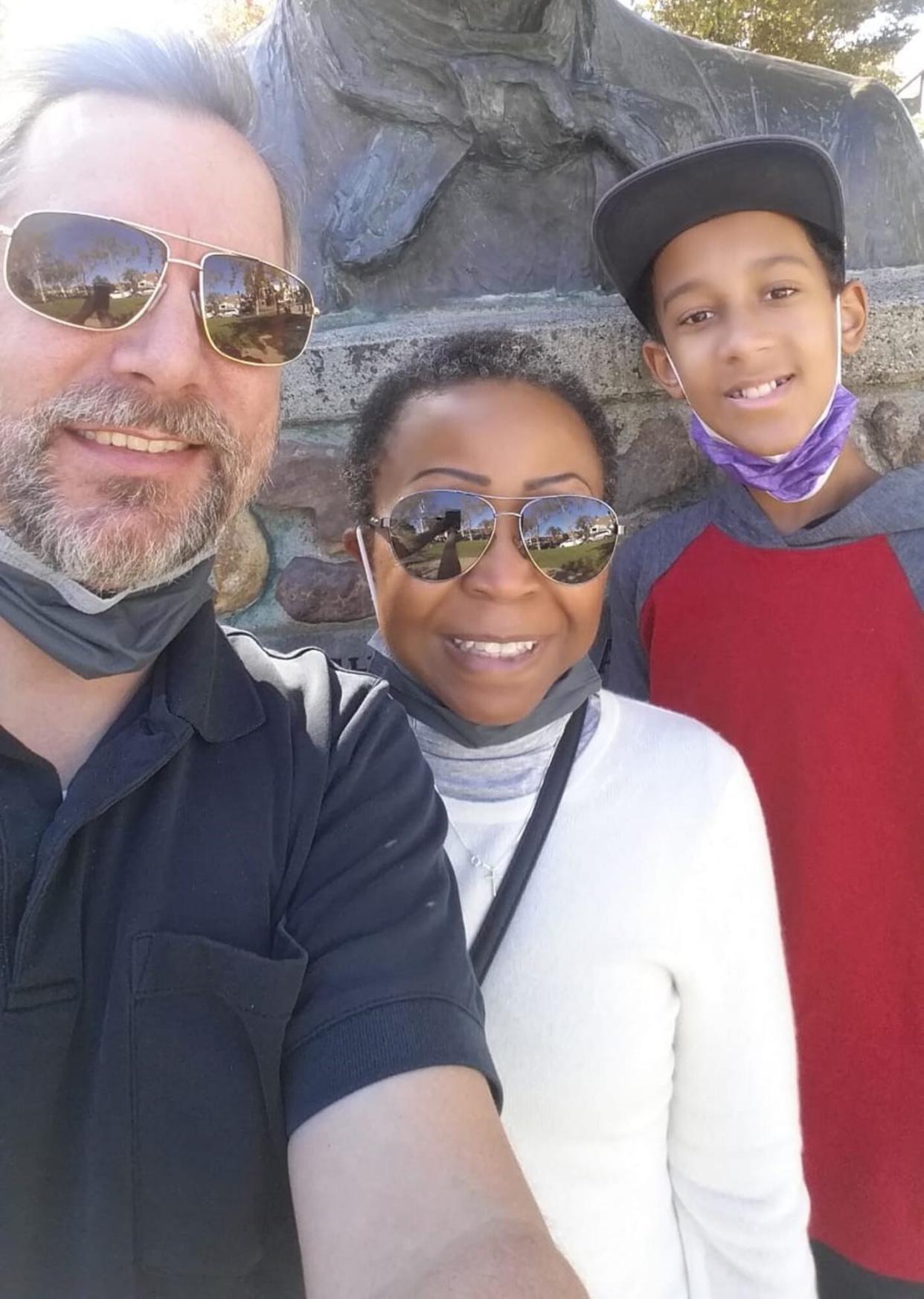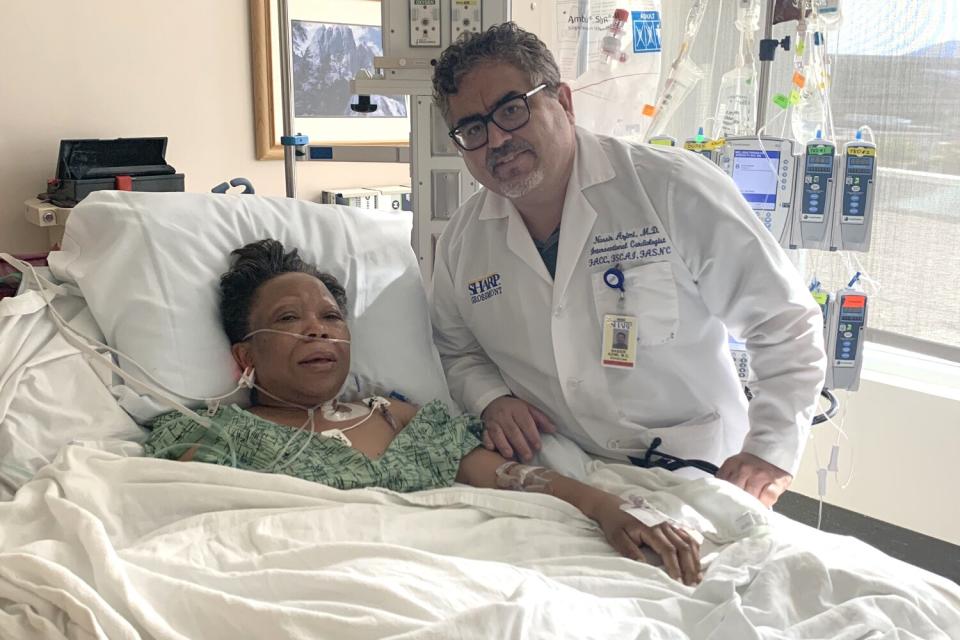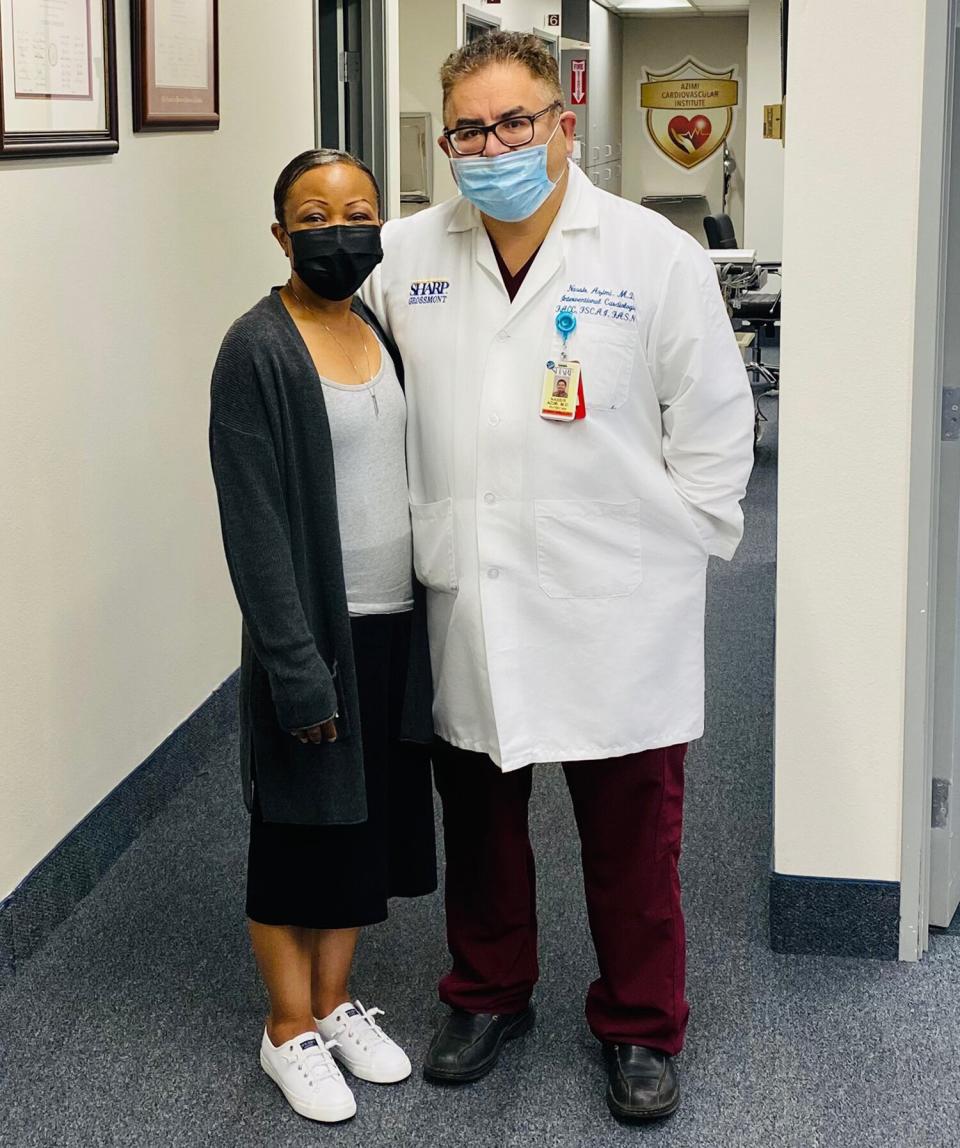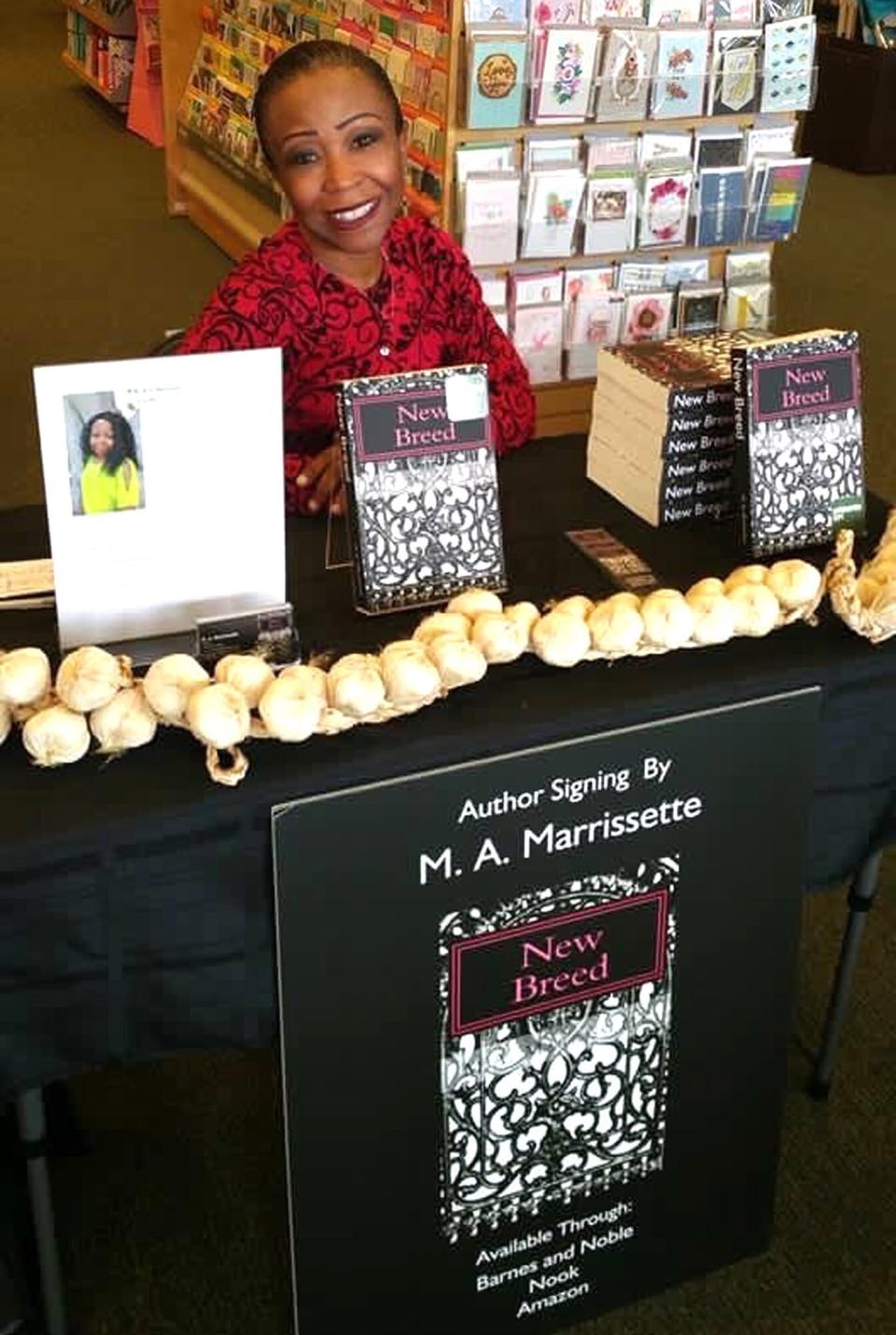How This California Mom Survived 3 Cardiac Arrests: 'I Want Women to Hear My Story'

Courtesy of the Hall family Monique Hall with her husband and son
For months, Monique Hall was feeling overwhelmed. The married mom was taking care of her young son, learning a new job as a teller at a credit union, and caring for her mother, who lived nearby and suffered from several health issues.
"I remember telling my husband that I was so stretched with all of my responsibilities that I was going to have either a heart attack or a stroke," recalls Hall, of Chula Vista, California. "I was fearful of it."
Those fears became a reality on January 22, 2020. After 51-year-old Monique — who has type 1 diabetes — experienced an evening of severe indigestion and vomiting, her husband, Chris, took her to the emergency room of San Diego's Sharp Grossmont Hospital. They both thought the symptoms were related to her diabetes.
There they learned the shocking news: She'd suffered a heart attack. While still in the ER, her heart stopped three times — she'd gone into cardiac arrest. "I remember thinking, 'I'm dying,' " Hall recalls. Doctors used CPR and tried to shock her heart into working again, but it was barely beating.
"The doctors asked my husband what he thought I would want them to do," she recalls. "And he said, 'Fight for her, bring her back. I need her. She's my friend, my partner.' "

Courtesy of Dr. Nassir Azimi Monique Hall and Dr. Nassir Azimi
"They handed him my jewelry during the times that I was coding," she adds. "And he told me he looked at them and thought, 'Is this all I have left?' "
By the time Dr. Nassir Azimi, an interventional cardiologist with the Burr Heart & Vascular Center at Sharp Grossmont Hospital, arrived on the scene, Hall was "declarable as dead," he says.
"I saw that she was in trouble, and every decision is very quick because I have to decide, 'Am I going to be able to give this person meaningful benefit or not,' " he says. "I was feeling like, 'Even though she's young, she's essentially dead. I don't know if I have much to offer.'"
Then Azimi spotted Hall's distraught husband, Chris, and son Grayson, then 11, and he thought of his own 9-year-old son.
"Emotions took over me more than science," Azimi says. "I felt like, I need to give her a chance. I don't want a motherless child if I can prevent it."
Azimi inserted stents in two different arteries to allow blood to once again flow, and intubated Hall to enable her to breathe. In the ICU, Hall was on a ventilator for three days before eventually stabilizing enough to slowly recover at home.
She's sharing her story in the hopes that others will take a proactive approach to preventing a heart attack.
"I just want women to hear my story," says Hall, who started a YouTube channel to educate others. "And be more cognizant of listening to their body and acting on it, not just looking the other way or thinking that other activities or things that they have going in their lives are more important because in an instant I was extracted from life."

Courtesy of Dr. Nassir Azimi Monique Hall and Dr. Nassir Azimi a year after her heart attack
"If you don't take care of yourself," she says, "you can't take care of those loved ones that you're working so hard for."
She urges regular monitoring with a doctor for cholesterol and blood pressure, a heart-healthy diet, exercise and stress-reduction. And to be aware of family history: Her father suffered his first heart attack at 40 and died at 56 of his second.
"I have a lot of different health avenues that I have to be mindful of," she says.

Courtesy of the Hall family Monique Hall
Two years later, Hall continues to recover both mentally — from the the trauma of her ordeal — and physically. "Having gone without oxygen for those periods when I coded, it affects my brain," she says. "Some brain functions aren't as good as they should be for learning new things, taking in information and remembering it."
Hall also writes fiction now, and relishes the support of her family, who have helped her prioritize self-care. "I stay painfully aware of the gift that was given to me," she says. "I would not want another good mom to have to go through what I did, if it could be avoided."

